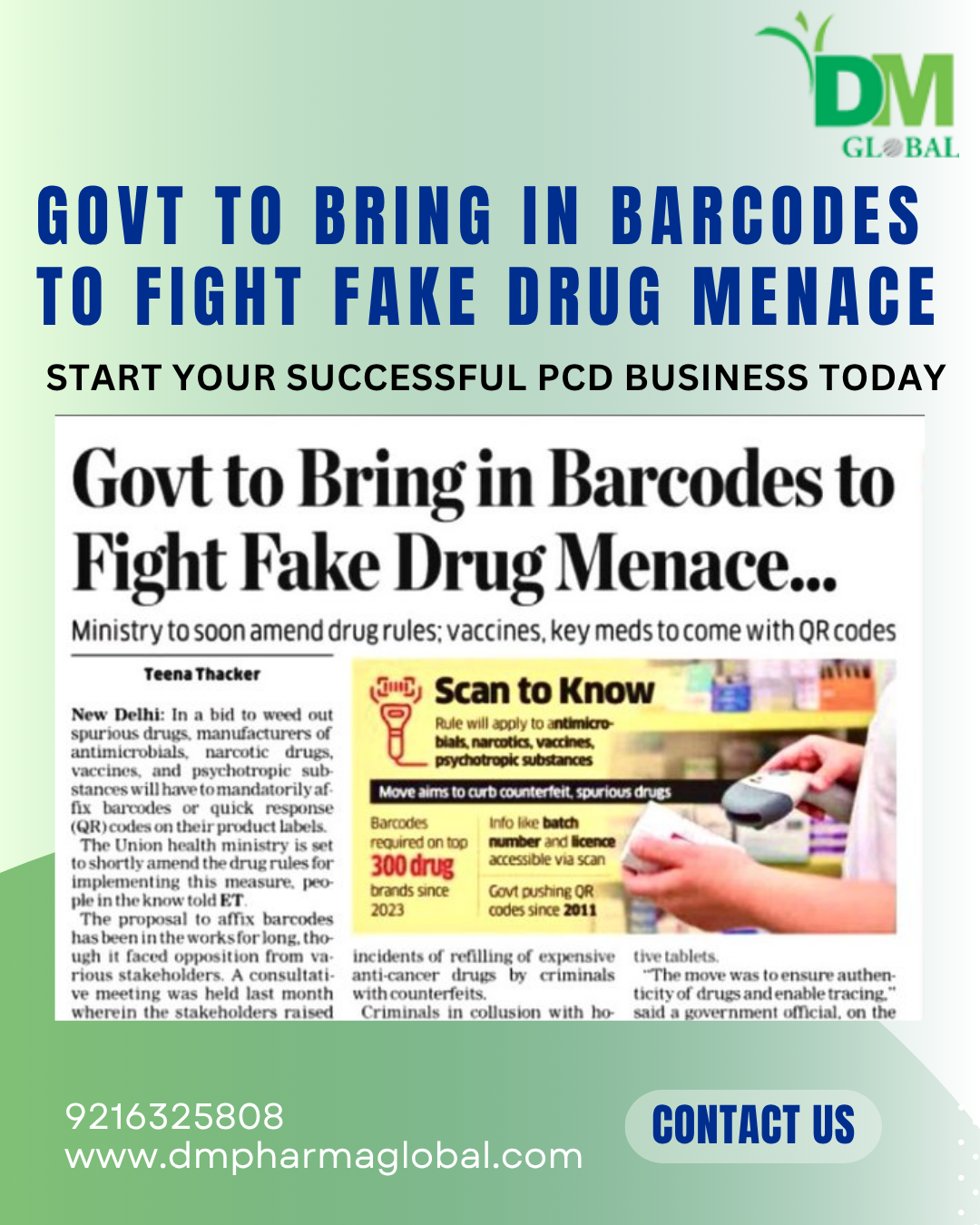India has a big problem of fake medicines. Clients take counterfeit drugs unintentionally; this leads many people to fall ill or get their health deteriorated. These counterfeit drugs are similar to the authentic ones, yet they lack the appropriate drug components. They are even harmful at times.
To stop this danger, the Indian government is now planning a big change. Soon, some medicines will have barcodes or QR codes printed on their packs. This will help people, shops, and doctors check if a medicine is real or fake.
Why is the government taking this step?
India is one of the biggest makers of medicines in the world. But because of this, it also faces the problem of fake drugs entering the market. These fake medicines can:
✅ Fail to cure diseases
✅ Make patients sicker
✅ Lead to serious health problems
✅ Break the trust people have in good medicine brands
To stop this, the Union Health Ministry has decided to make it compulsory for some medicines to have barcodes or QR codes.
Which medicines will need barcodes or QR codes?
The plan will apply to important medicines, such as:
➡ Antimicrobials (these are medicines that kill germs and stop infections)
➡ Narcotics (strong pain-killers that need careful use)
➡ Vaccines (which protect people from dangerous diseases)
➡ Psychotropic substances (used for mental health treatment)
Before this, barcodes were made compulsory for some cancer medicines. Now, this step is being expanded to include more types of important medicines.
How will barcodes help?
Barcodes or QR codes are like a medicine’s identity card. Each pack will have a special code that is unique.
👉 When a shop, doctor, or even a patient scans the code using a mobile app or scanner, they can check:
✔ If the medicine is real
✔ Where it was made
✔ Who supplied it
✔ When it was packed
👉 This makes it very hard for fake drugs to enter the market because they will not have a valid barcode that matches the records.
What is the role of pharma companies?
This step is important for pharma companies too. Big brands already use barcodes to keep track of their medicines. But now, more companies will have to follow this rule as it becomes law.
Companies like a monopoly medicine company in India, which have special rights to sell certain medicines in some areas, will need to make sure that their products have proper barcodes. This will protect their brand and ensure that fake medicines are not sold under their name.
In addition, pharma contract manufacturing companies will also have to meet these standards. These companies make medicines for other brands. It will be their duty to pack and label medicines correctly with the right barcode or QR code.
How will this benefit people?
By adding barcodes, the government hopes to:
✔ Stop the sale of fake medicines
✔ Protect patients from harm
✔ Help people trust the medicines they buy
✔ Make it easier for the government to track where a medicine came from
This move will also be beneficial in case of health emergency. As an example, when a batch of medicines is observed to have an issue, it can be easily identified and banished out of the market using barcode details by the government.
What happens next?
The Drugs Consultative Committee (DCC) has approved this change. The next step will be an official amendment to the Drugs Rules, 1945, to make it a law.
Once this rule starts, pharma companies will get time to make the changes in their packaging systems.
Conclusion
Fake medicines are dangerous for everyone — for patients, doctors, and for the country. The government’s plan to use barcodes and QR codes is a smart move to protect public health.
This step will also push the pharma industry, including monopoly medicine companies in India and pharma contract manufacturing companies, to improve their packaging and tracking systems. With everyone’s efforts, India can make its medicines safer and trusted by all.

